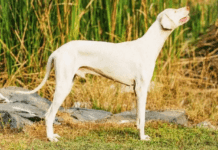- Tipu Sultan, also known as Tipu Sahab or the Tiger of Mysore,was the ruler of the Kingdom of Mysore based in South India and a pioneer of rocket artillery.
- He introduced a number of administrative innovations during his rule, including a new coinage system and calendar, and a new land revenue system which initiated the growth of the Mysore silk industry.
- He expanded the iron-cased Mysorean rockets and commissioned the military manual Fathul Mujahidin.
- He deployed the rockets against advances of British forces and their allies during the Anglo-Mysore Wars, including the Battle of Pollilur and Siege of Seringapatam.
- Tipu remained an implacable enemy of the British East India Company, sparking conflict with his attack on British-allied Travancore in 1789.
- Tipu’s father, Hyder Ali, was a military officer in service to the Kingdom of Mysore who had become the de facto ruler of Mysore in 1761 while his mother Fatima Fakhr-un-Nisa was the daughter of Mir Muin-ud-Din, the governor of the fort of Kadapa.
- Hyder Ali appointed able teachers to give Tipu an early education in subjects like Urdu, Persian, Arabic, Kannada, Quran, Islamic jurisprudence, riding, shooting and fencing.
- At age 15, he accompanied his father against the British in the First Mysore War in 1766.
- Dr APJ Abdul Kalam, the former President of India, in his Tipu Sultan Shaheed Memorial Lecture in Bangalore (30 November 1991), called Tipu Sultan the innovator of the world’s first war rocket.
- Two of these rockets, captured by the British at Srirangapatna, were displayed in the Royal Artillery Museum in London.
- Tipu managed to subdue all the petty kingdoms in the south. He was also one of the few Indian rulers to have defeated British armies.
- The peak of Mysore’s economic power was under Tipu Sultan in the late 18th century.
- Tipu Sultan appoints Judges from both communities for Hindu and Muslim subjects. Qadi for Muslims and Pandit for Hindu in each province. Upper courts also having similar system.
- Usage of liquor and prostitution were strictly prohibited in his administration. Usage and agriculture of psychedelics, such as Cannabis, were also prohibited.
- Polyandry in Kerala was prohibited by Tipu Sultan. He passed a decree for all women to cover their breasts, which was not practised in Kerala in previous era.
- Tipu Sultan’s treasurer was Krishna Rao, Shamaiya Iyengar was his Minister of Post and Police, his brother Ranga Iyengar was also an officer, and Purnaiya held the very important post of “Mir Asaf”. Moolchand and Sujan Rai were his chief agents at the Mughal court, and his chief “Peshkar”, Suba Rao, was also a Hindu.
- Historian B. A. Saletare has described Tipu Sultan as a defender of the Hindu dharma, who also patronised other temples including one at Melkote, for which he issued a Kannada decree that the Shrivaishnava invocatory verses there should be recited in the traditional form.[106] The temple at Melkote still has gold and silver vessels with inscriptions indicating that they were presented by the Sultan.
- Tipu Sultan also presented four silver cups to the Lakshmikanta Temple at Kalale
- Tipu Sultan does seem to have repossessed unauthorised grants of land made to Brahmins and temples, but those which had proper sanads (certificates) were not. It was a normal practice for any ruler, Muslim or Hindu, on his accession or on the conquest of new territory.
Subscribe
Login
0 Comments
Oldest



